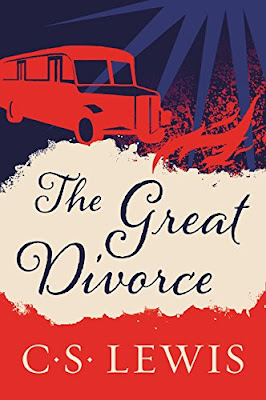Book in Review: "Anthem"
 Anthem is a short
novella which describes a dystopian world in which everything is spoken in terms of the collective
“we.” The protagonist (named “Equality 7-2521”) refers to himself in the
singular as “we” (which can make for a confusing read). He is given rules and
restrictions throughout his life, and given the work of street-sweeper when he
comes of age. The purpose of his life, just like the purpose of everyone else’s
life, is to serve his brothers. As the students chant with right arms raised: “We
are nothing. Mankind is all. By the grace of our brothers are we allowed our
lives. We exist through, by and for our brothers who are the state. Amen.”
Anthem is a short
novella which describes a dystopian world in which everything is spoken in terms of the collective
“we.” The protagonist (named “Equality 7-2521”) refers to himself in the
singular as “we” (which can make for a confusing read). He is given rules and
restrictions throughout his life, and given the work of street-sweeper when he
comes of age. The purpose of his life, just like the purpose of everyone else’s
life, is to serve his brothers. As the students chant with right arms raised: “We
are nothing. Mankind is all. By the grace of our brothers are we allowed our
lives. We exist through, by and for our brothers who are the state. Amen.”
Equality 7-2521 must never be alone, he must never get
outside out of his role which has been selected him by the counsel. But this
character is a little different from everyone else in the unhappy society, which he reluctantly admits: “We had
been a good Street Sweeper and like all our brother Street Sweepers, save for
our cursed wish to know. We looked too long at the stars at night, and at the
trees and the earth.” Equality 7-2521 was restless, curious—and that thirst for
Truth and beauty was something that would not be tolerated by the state. It was
also something that he could no longer ignore inside himself. Something
had to give.
In the effort to avoid spoilers, Rand depicts a clash
between the communal society and the rebellious protagonist, and provides an
alternative to the communal system after the mold of the protagonist. It is a
thought provoking read, which I can only figure shines a light on Rand’s own
personal/political manifesto—an understanding that delights in man the
individual and that individual’s personal autonomy.
And while I enjoy Rand's not so subtle critique of Marx, while
I applaud her delight of personal responsibility and individual achievement--I
cannot help but think that her end game conclusions are an over-correction from
the evils of the Communists. Pure self-interest coupled with a complete and
total worship of ego--while divorced from any communal application--will undoubtedly
manifest itself in un-empathetic cruelty. A sort of
unrestrained free-market Darwinianism where the strong eat the weak, all in the
name of individualism and the pursuit of happiness. This is unfortunately Rand's end game.
As Equality 7-2521 says in the novel: "I do not
surrender my treasures, nor do I share them. The fortune of my spirit is not to
be blown into coins of brass and flung to the winds as alms for the poor of the
spirit...I owe nothing to my brothers, nor do I gather debts from them. I ask
none to live for me, nor do I live for any others." There are some serious
ethical/moral concerns here with Rand's "I do what I want" approach
to life--concerns that many are quick to point out, and rightfully so. We have
seen pure and unadulterated selfishness fleshed out in an economy before,
and it is anything but right. Though it may be channeled in a free market for some good aims, selfishness is not and has never been--a virtue.
As Christians we have to be careful of any ideology which
looks to make man the measure of all things, whether it is man the individual
(as was the case with Ayn Rand) or whether it is man the collective (as was the
case with Karl Marx). Both systems in the extreme will inevitably fail, because
man was never intended to be the measure of all things! Thankfully we know that
a man’s life does not consist in the abundance of his possessions. We know that
the call of Christ does not allow us to worship the god of self or the god of
the state, but rather it bids us to come, die, and submit to the Lordship of
someone who is indeed the measure of all things. Furthermore the second
greatest commandment compels us not to disregard our fellow image bearers in our
own autonomous pursuit of happiness.
In the end, Rand’s view may prove superior to Marx (history surely suggests it does) because
it decentralizes the depravity of man, and incentivizes work and innovation, but
it is still dangerous. It still falls desperately short of Utopia.
Thankfully, we are not looking for heaven on earth. Not yet
at least.
***
“All these people were still living by faith when they died.
They did not receive the things promised; they only saw them and welcomed them
from a distance, admitting that they were foreigners and strangers on earth.
People who say such things show that they are looking for a country of their
own. If they had been thinking of the country they had left, they would have had
opportunity to return. Instead, they were longing for a better country—a
heavenly one. Therefore God is not ashamed to be called their God, for he has
prepared a city for them.” Hebrews 11:13-16



Comments
Post a Comment